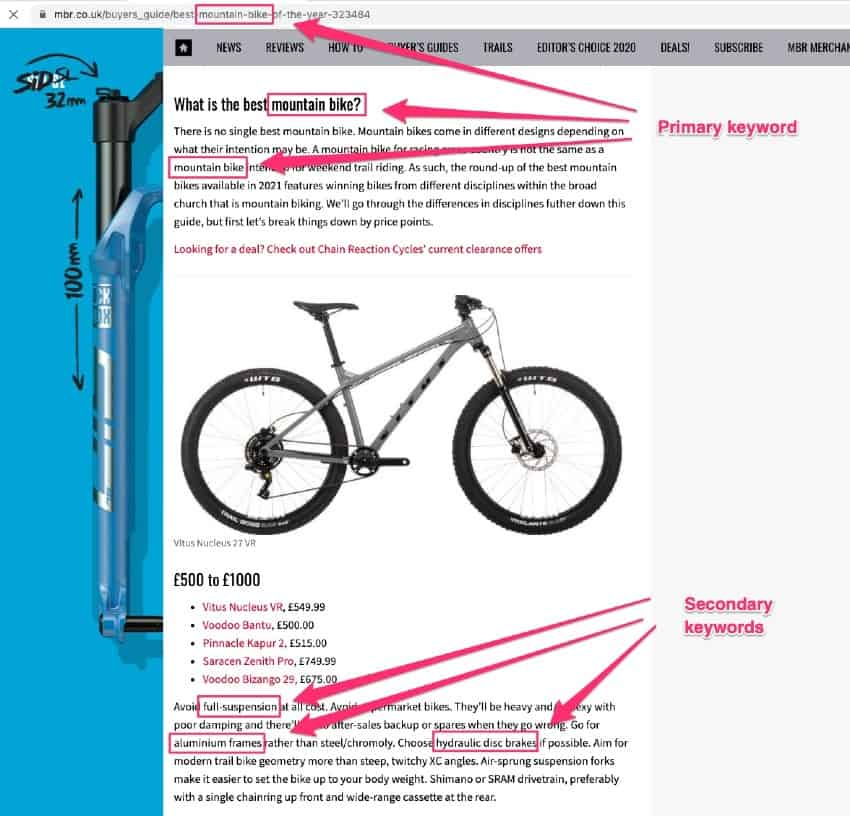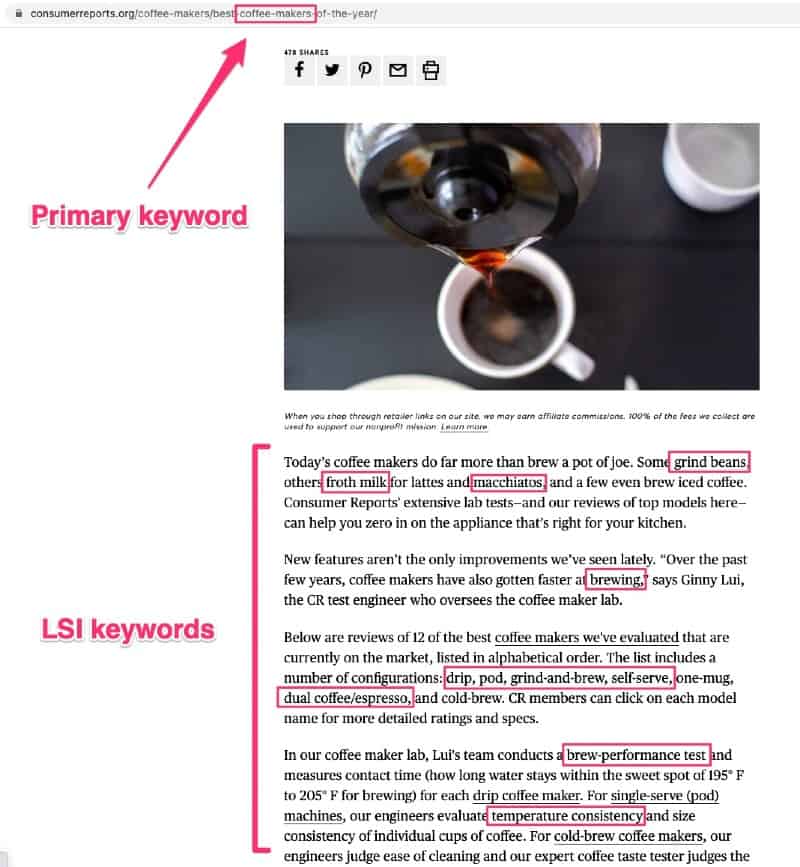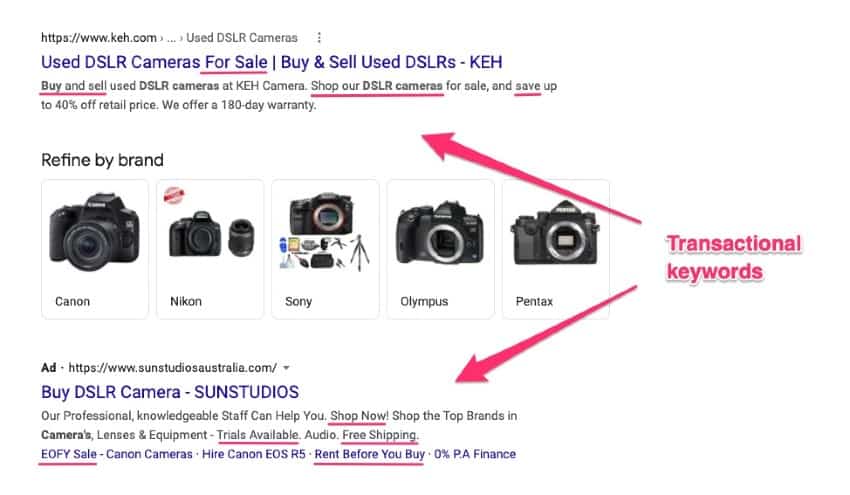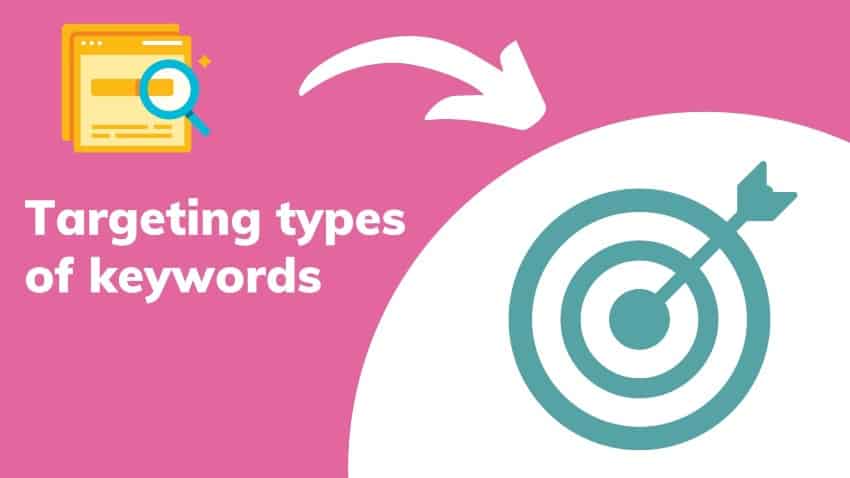In the world of search engine optimization (SEO), keywords stand as the backbone, guiding users to relevant content and helping websites ascend the ranks of search results. They’re not just simple words or phrases; they’re the bridge connecting inquisitive minds to answers, products, and services.
Yet, the keyword game isn’t about stuffing your content with high-search volume terms and hoping for the best. Modern SEO is intricate, with an array of keyword types, each with its unique potential and strategy.
This article dives deep into the realm of SEO, unveiling 21 types of keywords that can transform your website’s visibility. From short-tail to long-tail, transactional to informational, we’ll break down how to identify, incorporate, and leverage these keywords to optimize your digital footprint.
Whether you’re an SEO novice or a seasoned pro, this guide will provide insights to enrich your strategy and keep you ahead in the dynamic landscape of search.
Types of Keywords by Length
The first, and most important classification for keywords, is length or number of words: the shorter the keyword, the more competitive it is and the more traffic it delivers.
#1. Short-tail keywords
Short-tail keywords or ‘head’ keywords are keywords comprising a single word. An example would be ‘cars’. Short-tail keywords usually (a) have very high search volume, (b) are highly competitive, and (c) are fairly un-targeted in terms of searcher intent.
#2. Mid-tail keywords
Mid-tail or middle keywords are keywords comprising two words, such as ‘Italian cars’. These keywords are still very competitive and still have high search volume.
#3. Long-tail keywords
Long-tail keywords comprise three or more words, such as ‘Italian vintage cars’. They typically have much lower search volume than either head or middle keywords, but they are also much less competitive. These are the keywords that you can rank for on Page #1 of the search results.
FURTHER READING
For more insight into long-tail keywords, read Marieke van de Rakt’s article: Why focus on long-tail keywords?
Types of Keywords by Role
On any given web page, keywords have different roles: there’s the main keyword you want to rank for but there are also secondary keywords that provide context for your main keyword.
#4. Primary keywords
Your primary keyword is the keyword you want your page to rank for on Google.
This keyword will usually be found in the title of the article and the URL of the article. It should also appear numerous times throughout the body of the article and in at least one heading or sub-heading.

#5. Secondary keywords
Secondary keywords are words that add detail to the primary keyword. They often zero in on the searcher intent behind the primary keyword.
If your primary keyword is ‘printers’ your secondary keywords might be ‘laser’, ‘multifunction, ‘inkjet’, and ‘dot matrix’.
#6. LSI keywords
LSI keywords are keywords that are related to your primary keyword. They may be synonyms or they may simply be words that are associated with the main keyword.
Example: ‘iTunes’ is an LSI keyword for ‘Apple’ because the two words are often found together and share the same context.

For more about LSI keywords, see my article What Are LSI Keywords & Why They Help With SEO
Buyer Keywords
‘Buyer keywords’ refers to the kind of keywords people type into a search engine when they are looking to buy something online. These keywords correlate with where a person is in the buyer journey.

#7. Navigational keywords
Navigational keywords are keywords that people use when they know what they are looking for.
Example: ‘go pro cameras’ or ‘apple music’
#8. Informational keywords
Informational keywords are keywords used by people searching for information about a product, a service, or a topic.
Example: ‘best iphone’ or ‘fastest
#9. Transactional keywords
Transactional keywords are used when the searcher is ready to make a purchase. They’ve gathered their information, they’ve made a decision, and now they want to make a purchase.
Example: ‘buy dslr camera’

For more tips on how to use buyer keywords to reach your target audience, see this article by Semrush: What Are Buyer Keywords and How Do I Find Them?
Types of Keywords by Target
These are types of keywords that target specific kinds of searchers.

#10. Branded keywords
Branded keywords are words that contain your company name.
This type of keyword targets searchers who already know the brand they want. This is why branded keywords are often a form of ‘navigational search’ (people using keywords to find something they already know about).
Example: ‘best fitbit for men’
#11. Customer defining keywords
Customer-defining keywords are keywords that target a demographic segment of your market. These keywords usually comprise the main keyword plus a modifier that describes a type of customer.
Example: ‘recipes for busy mums’
#12. Market defining keywords
Market-defining keywords are broad keywords that refer to an entire business or industry. You can find market-defining keywords in industry forums and in interviews with industry leaders.
Example: home exercise machines
#13. Product defining keywords
Product-defining keywords specify a particular model of a product. If you have an ecommerce site, you would probably want to have individual web pages that target product-defining keywords.
Example: ‘NordicTrack Commercial X32i’
#14. Geo targeted keywords
Geo targeted keywords are keywords that combine a product or service with a locality. Searchers who use geo targeted keywords are looking for a product or service nearby or in a specific location.
Example: ‘smash repairs Denver’

Type of SEO Strategy
These three categories of keywords refer to the type of keyword strategy being used.
#15. Organic keywords
Organic keywords are keywords you target with the aim of getting free traffic through search engine optimization.
Example: any keyword that a person types into Google Search
#16. PPC keywords
Pay-per-click keywords are keywords that appear in ads at the top of the page, above the organic listings.
Instead of competing for these keywords on the basis of things like content quality and link profile (as in organic search), you bid for these keywords in an auction.
Example: any keyword that has a commercial intent
For more tips on how to find and use PPC keywords see this article by Wordstream: PPC Keywords: How to Find the Right Keywords for PPC Advertising
FURTHER READING
For more tips on how to use PPC keywords see this article by Wordstream: PPC Keywords:How to Find the Right Keywords for PPC Advertising
#17. Competitor keywords
Competitor keywords are the keywords that your competitors are targeting.
The idea here is that your competitors have already found the keywords that deliver the best traffic in your niche, so you don’t need to ‘reinvent the wheel’. By targeting the same keywords as your competitors, you can save yourself months of trial and error.
Example: any keyword that your competitors rank for
For more about competitor keywords and how to find them, see my article Discover Your Competitors’ Keywords & Triple Your Traffic.
Google Ads Keywords
Within Google Ads, Google has established different keyword match types. These keyword match types determine what kind of searches will trigger your ad.
#18. Broad match keywords
Broad match is the default setting in Google Ads.
With this setting, your Google ads are triggered on variations of your keywords, including synonyms, singular and plural forms, possible misspellings, and stemmings (e.g. floor and flooring).
Example: ‘hat’ – your ad could show for ‘sun hats’, ‘caps’, ‘fedora’, ‘panama hat’, etc.
#19. Phrase match keywords
With phrase match, your ad is only triggered by search queries that contain your exact keyword phrase.
Example: ‘tennis shoes’ – your ad would be triggered for a search on ‘red leather tennis shoes’ but not on a search for ‘shoes for tennis’.
#20. Exact match keywords
With this option, your ad will only be triggered by exact matches with your keyword or close variants.
Example: ‘shoes for men’ – your ad would be triggered by searches for ‘shoes men’ and ‘men shoes, but not for ‘red shoes for men’.
#21. Negative keywords
Negative keywords are keywords that prevent your ads from being triggered.
Example: a commonly used negative keyword in Google Ads is the word ‘free’ (if you’re paying for ads, you don’t want to be using ad spend on searches for free products or services).
FURTHER READING
For more tips on how to use Google Ads keywords, see this article by Tony Tran: A Beginner’s Guide to Using Google Ads (Previously Google Adwords)
Conclusion
Knowing about these different types of keywords in SEO will help you create a successful keyword strategy. When thinking about potential keywords, ask yourself which of these 21 categories is most relevant to your business.
While some of the keyword categories may not apply to your situation, most online businesses can benefit from long-tail keywords, competitor keywords, branded keywords, and customer-defining keywords.
More Articles About Keyword Research
- How To Use Keyword Modifiers To Rank on Google
- How to Find Seed Keywords for Better SEO (2 Simple Methods)
- What Is a Focus Keyword – 7 Tips For Better SEO
- How To Find Long Tail Keywords Using Free & Paid Tools
- How To Rank for Multiple Keywords and Triple Your Traffic
- What Are Stop Words In SEO – Everything You Need To Know
- High Intent Keywords – What They Are & How To Use Them
- The Keyword Golden Ratio: The Secret To Ranking on Google
- How To Use ‘People Also Ask’ (PAA) For Better SEO
- What Are LSI Keywords & How To Use Them To Rank Higher
- What Is Keyword Research – A Guide For Beginners (2022)
- What Is Keyword Grouping & How Does It Help With SEO?